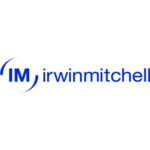Continue reading "Breach of trust: Who bears the loss?"
Breach of trust: Who bears the loss?


Continue reading "Breach of trust: Who bears the loss?"
The claimant, who was born in 1934, left all financial matters to her husband until his death in 2005. He had made ample provision for her, with an annual income of about £100,000. She lived in a large house, in Northumberland, which for inheritance tax planning reasons she transferred to her son, the defendant, in 2006. As she continued to live in the house, to comply with the reservation of benefit rules she paid her son a monthly rent of £2,500. The claimant’s health began to deteriorate in 2011, subsequently suffering a stroke which left her with hemiplegia. By 2013, as a conseq...

Continue reading "Breach Of Trust: Dirty money"
The plaintiffs were the former trustees of the Tchenguiz Discretionary Trust (the ‘trust’), which had been established in Jersey by Declaration of Trust dated 26 March 2007 for the benefit of a class of beneficiaries comprising Robert Tchenguiz and his children a remoter issue. The Trust was funded initially by an appointment from the Tchenguiz Family Trust which had previously been established in the British Virgin Islands. Subsequently, the trustee of this trust entered into a loan agreement for borrowing of monies from Kaupthing Bank (the ‘bank’) and then made an appointment of assets...

Continue reading "Trusts: Consequences of non-compliance"
The claim arose from a purported sale of a property to the claimant by a fraudster who purported to be, but was not in fact, the registered owner of the property. By the time the fraud was discovered the whole of the purchase price had been paid by the claimant to the second defendant (the claimant’s conveyancer), by the second defendant to the first defendant (the fraudster’s solicitor) and by the first defendant to an account in Dubai upon the fraudster’s instructions.
The fraudster’s instructions to the first defendant were that the property had been given to him by his father,...
The claimant, Mr Brudenell-Bruce Earl of Cardigan brought a claim for breach of trust against two trustees of the Savernake Estate Trust (Mr Moore and Mr Cotton) of which he is a beneficiary. He also challenged the trustees’ remuneration and sought their removal as trustees.
The estate consists of numerous properties including a mansion, Tottenham House with an adjacent stable block. The estate is held on trust for sale and within a partnership with 49% of the partnership belonging to Lord Cardigan absolutely and 51% held by the trustees of the Children’s Trust, the beneficiaries ...
The appellant bank instructed the respondent solicitors to act in relation to a £3.3m re-mortgage on behalf of themselves and the borrowers. The borrowers’ property (the property) was already subject to a first charge in favour of Barclays. A part of the respondent’s instructions was to redeem the outstanding Barclays mortgage and to secure a first charge against the property in the appellant’s favour.
Due to an oversight, the respondents paid only £1,23m of the outstanding £1.5m Barclays loan and then transferred the balance to the borrowers. Having realised their error, the resp...
W and the defendant embarked on a project with the aim of acquiring a substantial interest in an English company, TSE, which started with the acquisition of 125,000 TSE shares in 2002 (the first tranche). In 2003 they attempted to make additional acquisitions of TSE shares, such attempts involving three of W’s companies, including the plaintiff. The overall scheme was that funds would be provided by one company, Assanzon, for the acquisition of shares for another company, Momentum, which were held for its beneficial owners which were principally the plaintiff company, Libertarian. The fu...
The claimant Arthur Watts (Arthur) sued his brother James Watts (James) in respect of trust transactions in 1998.
In 1967 Geoffrey Watts, the father of Arthur and James, made a settlement in favour of his children and grandchildren. In 1976 this trust fund was split into separate trust funds for each of Geoffrey’s children. James was one of the trustees of Arthur’s trust fund. The main beneficiaries were Arthur in his lifetime and thereafter his legitimate children. Clause 4 allowed the trustees to pay all the capital to Arthur if they considered it to be to his advantage...